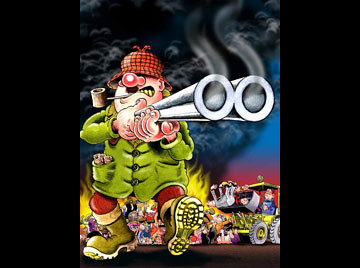The crown estates ultimately belong to the state. This is easily demonstrated. When James II was kicked off the throne in 1688 - by Parliament! - he did not retain the crown estates. They were transferred to the king appointed by Parliament, William III.
The present Queen is only Queen because of the 1701 Act of Settlement, which can be repealed at any time. The crown estates attach to the office, not the person. Like a tied cottage.
When Edward VIII abdicated, his brother had to buy Sandringham and Balmoral off him because they were personal property. He did not have to buy the crown estates, as they went with the "job".
If the crown estates were private property, they would belong to the Jacobite heir - whoever that is. But they're not so they don't.
One of the Georges swapped the crown estates for an annuity because he was broke. Since then Parliament has made a better job of managing the estates than the royals ever did and consequently is in profit. Good for Parliament.
NB, if you go way back to when Kings were Kings, they were expected to "live of their own" except in times of war, when there could be taxes to pay for the extra cost of war. In other words, anciently, the crown estates paid not just for the court, but also for defence, justice, prisons, diplomacy and all the other "basic" services. We could of course go back to this and just have taxes for new things like the NHS, education, social services, pensions and so on that the medieval kings didn't fund.

